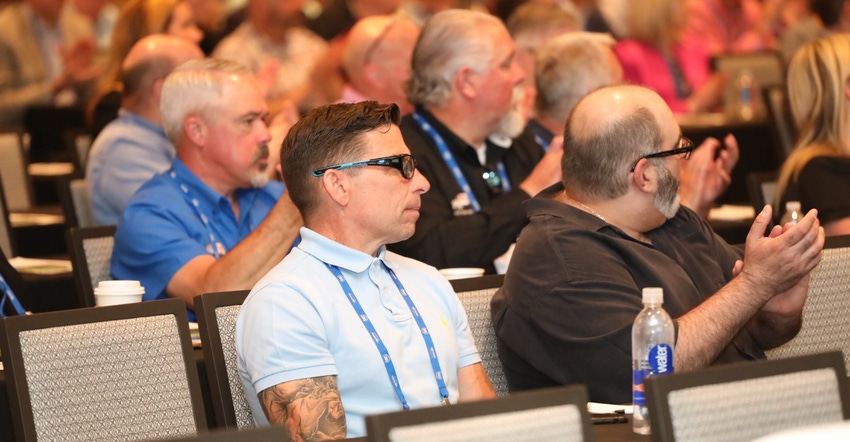Success stories from the frontlines of running a midsized business

At the 2019 Waste360 Business Growth Forum (recently renamed the Waste360 Business Leadership Forum), attendees heard first-hand accounts from a panel of seasoned industry entrepreneurs about their paths to success, including the hard lessons and pitfalls along the way.
If you are looking to take your small to midsized environmental services company to the next level, keep reading for insights into:
the importance of building strong relationships
when and why to exit
other business and financial strategies for success
The panelists for the “Success Stories” session were:
Charlie Appleby, chairman, Integrated Waste Solutions
Scott Earl, founder & CEO, County Waste Virginia
Robert Michalik, managing director, Kinderhook Industries
Bart Powell, founder, Right Away Disposal
Joe Winters, chairman & CEO, Winter Bros. Waste Systems
What are the best paths to growth?
Appleby: At Advanced Disposal, our strategy developed over time. We wanted to build what we characterized as integrated geographic hubs. We would have a disposal or recycling facility — think of that as the hub of a wheel — and around that, we would grow through acquisitions or strong internal growth, to grow the volume to feed that landfill. That was the ultimate strategy that allowed Advanced Disposal to become the success it is today.
Earl: One key factor for success is building the right team; not only incentivizing, but also recognizing people have lives and needs. Staying focused on providing excellent customer service — but also providing excellent service to your team.
Michalik: We always look at investment opportunities as starting from the passion of the executives. Find people who have passion, and you want to back that passion — underwriting their vision and plan.
What are some of the most valuable lessons you learned?
Appleby: The ability to arrange the funding for whatever you’re looking to do is very important. We committed to an acquisition one day and did not have the funds to do it, and we had to rush around to figure out how to pay for it. We eventually got it financed on some very expensive money, and from that experience I coined the phrase, “Never jump into a pool of sharks if you’re bleeding — because they will certainly take advantage of you.”
Winters: There are always challenges, and there are always going to be curveballs thrown at you. The most important thing is to have the right team around you, the people you can trust and work with everyday that you have confidence in. And also the right professionals — the right attorneys, accountants and equity partners. Everybody loves you when things are going great, but that changes fast when things don’t go so well — but that’s when you find out who your good partners are.
Approaches for exit strategies.
Michalik: People think of reducing spending, reducing CapEx …“pretty-up” the business as best you can [for a sale]. But my philosophy has always been that we want to run our companies like we want to own them. You don’t know if you’re going to be able to sell — so you need to continue to invest in the people, capital and systems, so you’re building your enterprise like you want to own it. If you think you’re going to trick somebody by under-investing, you think you’re gonna pull a fast one by underpaying people … those things come out over time. The best companies are the ones that get bought — and they get bought at the best values.
What challenges and opportunities do you see in running a waste and recycling business these days?
Powell: You have to stay out in front of the workforce; staying in front of the manpower issue. And knowing that you’re only as good as your employees that are around you — letting them know and empowering them to go out and provide good service.
Earl: How much training is needed to get your people up into the 21st century? We have tablets in every truck, navigational software… There are a lot of opportunities for businesses today. Replacing old equipment is necessary but also a challenge.
Michalik: We always tell prospective executives and owners: it’s all about who the financial partner is. Just like you do due diligence on an acquisition, you’ve gotta do due diligence on your financial partners. Do your homework. It’s more important who your partner is than the terms you get.
View the full video of the session here.
About the Author(s)
You May Also Like




